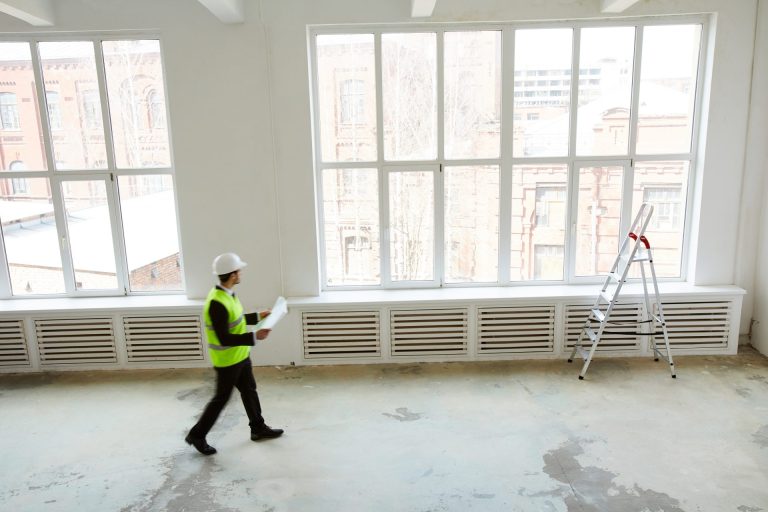Today we look at five tax tips every property investor should be aware of. Keep these in mind while investing and you’ll be on the road to saving a pretty penny or two.
Remember, it’s always important to discuss tax advice with your accountant. Your personal accountant knows your individual circumstances and help maximise your savings.
1. Depreciation costs
Are you making improvements to your investment property? Don’t throw away your receipts! You can claim a range of property improvements on tax such as replacing dishwashers, adding air conditioning or renovating a kitchen. The catch? They come at a depreciating cost. This means the relevant deductions must be claimed over a period of years based on the life of the item.
The items you can claim tend to change according to the Federal Budget. That’s why it’s important to stay up-to-date with the latest property tax regulations and changes.
Anthony Wardley from Newcastle accountants, A Squared Advisers, outlines the significance of being aware of the tax deductions that are available to you:
“Every year a Federal Budget is announced. The Federal Budget can significantly impact the amount of money you make on your investment property.
For example in 2017, the new laws resulted in the removal of the following tax deductions for investment property owners:
- Travel deductions to inspect and maintain residential properties.
- Depreciation deductions for second-hand goods.”
2. Negative gearing
Many property investors opt for negative gearing.
Negative gearing means that the interest you are paying on the property’s loan and other deductions are more than the income you receive in the form of rent. As a result you are making a net loss.
Basically, it means you’re losing money.
Why opt for negative gearing if it means making a loss? An investor may be prepared to accept the loss if they expect to offset short term losses with a capital gain by selling the property in the future. Take Newcastle, Debbie Schipp from News Limited recently spoke about Newcastle becoming the next big thing in the capital growth market.
3. Capital Gains Tax
A capital gains tax discount of 50 per cent applies as long as you have held the asset for a minimum of 12 months.
If you’re thinking of selling, you should talk to your accountant beforehand. Your accountant can help you estimate the amount of tax you will have to pay – and knowing this early could impact your decision to sell.
If you still decide to sell, your accountant can help you get the timing right. The capital gain is included in your tax return in the year the contract is exchanged, not the date of settlement – so it’s important to get this right.
If the property was acquired prior to September 20, 1985 it’s likely you don’t need to pay capital gains tax. However, if you’ve made significant improvements, you’ll need to seek tailored advice to clarify how the property is to be taxed.
On the other hand, if your property was acquired after September 20, 1985 you can take the proceeds received for the property and deduct the amounts you paid for the property. This includes the costs to acquire, hold (where not otherwise deducted) and dispose.
If the above figure is a gain, then any capital losses from the current or prior years (that have not already been claimed) can reduce the capital gain.
After losses have been applied, the figure is then reduced by 50% so that only half the gain is included in your taxable income for the year. You then pay tax on that amount at your marginal tax rate.
Hopefully you don’t incur a loss on the property! But if you do, the amount will be offset against any other capital gains in the tax year. The balance will also be carried forward to future years – and there’s no limit to how long you can carry forward a capital loss.
It’s important to know that when calculating the capital gain, in most circumstances special building write off (capital works deductions) claimed on the property will need to be added back onto the disposal of the asset. This applies if the property was acquired after 13 May 1997, or if the asset was acquired any time and the improvement that led to the capital works deduction was incurred after June 30 1999.
If you’ve ever lived in the property, you may also be entitled to a partial main residence exemption. These rules apply differently depending on whether the property was your main residence at the start of the ownership period or partway through the ownership period. It’s always a good idea to get specific tax advice to ensure you’re applying the legal exemptions available to you.
If you inherited the property, there will also be special rules that impact how the cost base is calculated. Again, its best to get tailored advice.
4. Pre-paying expenses
If you have a geared investment property, you can pre-pay expenses or bring forward expenditure that would be spent in the next financial year.
Here are some of the benefits:
- Pre-paying expenses can help manage cash flow and budgeting for your rental property expenses.
- It can save time. Generally, most people find it easier to pre-pay rates, insurance and strata fees. These fees are ongoing expenses for things like home insurance, cleaning, gardening and building maintenance.
- Let’s say you predict you will make less profit in the following year or know you will be away from work for a few months. The expenses you pay in advance are deductible in the year it’s paid provided the prepayment is for no more than 12 months.
5. PAYG Variation
PAYG variation allows investors to vary their income tax.
If you’re negatively gearing a property it may be worth considering a PAYG Withholding Variation application. It basically means you can get less tax taken out of each pay packet.
PAYG variation is particularly useful for investment property owners because the variation estimates your expected tax liability (based on deductions such as interest, maintenance, and depreciation costs) for the year and allows your employer to take less tax out of your wage.
However, submitting a PAYG Variation form doesn’t exempt you from tax at the end of the financial year. You still have to calculate the tax liability like every other year. PAYG Variation can simply help increase cash flow throughout the year rather than receiving a lump sum tax return at the end of the year.


